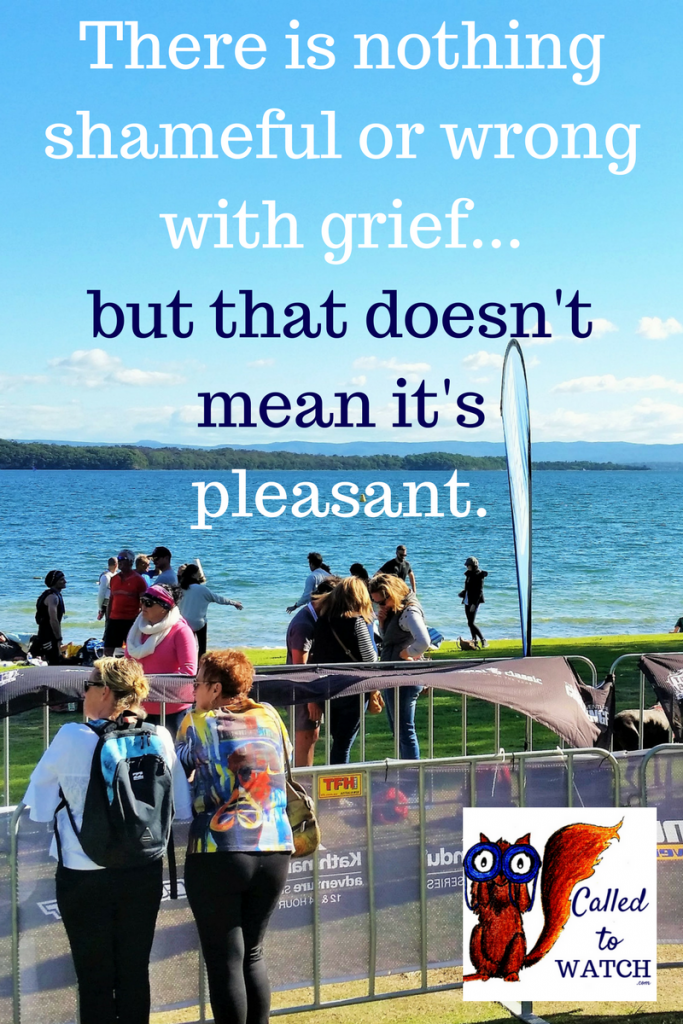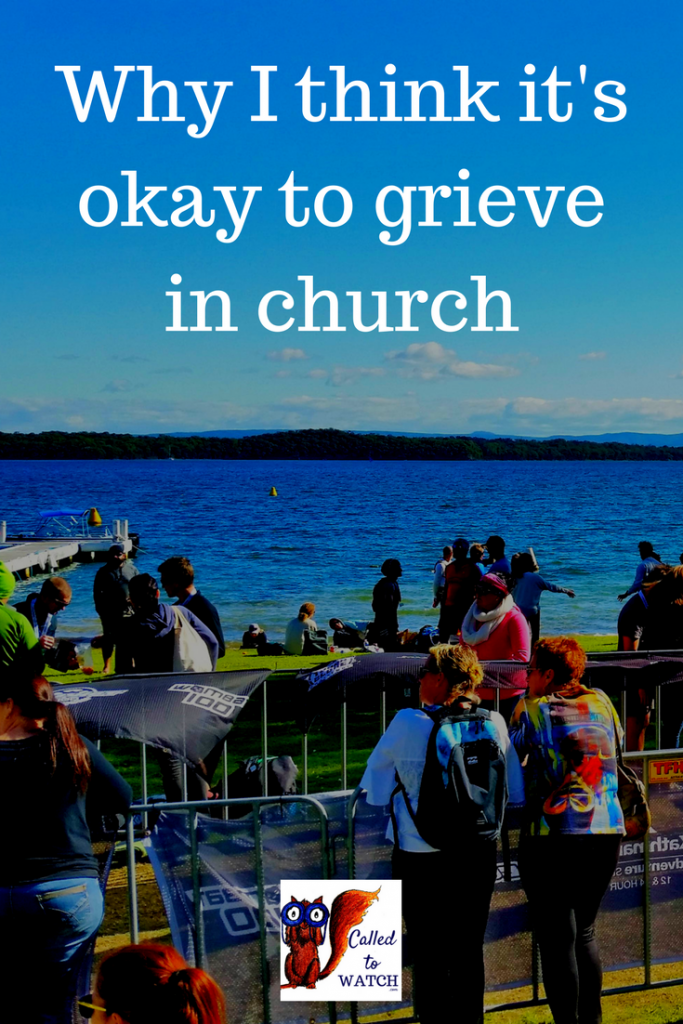Yet when a diagnosis of chronic illness enters our lives, or the lives of our family members, it’s impossible to avoid public places, and often just as impossible to avoid tears!
As Christians, church is a public sphere where we may find it hard to contain our grief. For this reason I’m going to use it as an example, but most of what is written below can apply to any public space.
Firstly: should we even be trying to contain our grief?
I don’t think so.
4 Reasons we grieve chronic illness in public
1. We grieve chronic illness in public because we care
We respond emotionally to the things we care about.
That’s just natural. When we or someone we love is diagnosed with a chronic illness, we will respond emotionally.
In the same way, if you’re a Christian, church is something you’re invested in. The group of fellow believers you meet with weekly to encourage and worship God together – that’s a big part of your life.
We give time, effort, energy and money to our church. We care about it deeply – and so, like chronic illness, we react deeply as well. Whether it is outrage over a new policy or discomfort from a hard-hitting sermon, church should and will cause an emotional response.
Is it surprising then, that our grief over chronic illness can manifest in church?
Not at all.
We respond emotionally to things we care about. Tweet!
2. We grieve chronic illness in public because we are confronted with truth
There’s no side-stepping the fact that ‘deep truths’ are dealt with in church.
In a single church service it’s not uncommon to talk about death and life, suffering and rejoicing, friendship and loneliness. After all, our God did all of this. He came to rescue us from our sinfulness and death; He himself suffered horrendously on a cross. It is not unnatural that we would discuss such things.
When we Watch someone suffering, these realities make up our everyday life. As a result, life and death and community and alone-ness all take on very real meanings.
We know what they feel like.
We know how they hurt.
For this reason, church does not deal with abstract concepts for us, but living realities we are deeply invested in – and so it is not surprising we may be moved to grieve while others remain dry eyed.
3. We grieve chronic illness in public because we are used to grieving
Dealing with a diagnosis of chronic illness is draining.
It is exhausting to spend a lot of time around sick people, and can put us under a lot of emotional stress.
Chronic illness can leave us worrying about the future. Dealing with our own emotions. Staying up all night with sick children. Visiting aging parents at all hours of the day.
No answers. Little sleep. Horizons which are always clouded.
These things wear us down. Physically, it is going to be harder for us to hold in our tears until they are ‘appropriate’.
That’s just reality.
4. We grieve chronic illness in public because we have to talk about it
It’s astonishing how normal tragedy can seem until we actually have to put it into words.
Sometimes voicing our agony can make it even more painful (in the short term). At church, when we are surrounded by people who (hopefully) care deeply about us (or at the very least, are curious) – we will be asked questions.
How are you?
How are you really?
How can I pray?
What are you struggling with?
These questions are difficult, personal and deal with ‘deep’ things. Our answers may include tears.
That’s natural.
Grieving in church is okay
Do any of the reasons above seem wrong to you? They don’t to me. And so if you find yourself weeping at church or sniffling at the shops, I think that’s okay.
Grief is okay.
Sadness is okay.
That doesn’t mean it’s pleasant, or comfortable, or that it makes singing worship songs or buying cereal easy – it does not.
But it’s not wrong, and sometimes I think we all need a reminder of that. There’s nothing shameful about grief.
// Have you found yourself grieving in public before? How did you feel about it? How did others respond?
If this post made you think, leave a comment or share it with others!
PS: Enjoyed the post above? Get the next one delivered straight to you! Sign up for email notifications
I’m also on Facebook, Pinterest & Twitter! Meet me there for more interesting reads, resources and community.




Hi Emily,
You got me thinking. I loved your post. We all need to get better at grieving in public and how to respond to people that are grieving. So many times our natural instinct is to get others to stop crying. We hand them kleenex and try to make it better when crying is a normal, healthy and a needed expression of what is going on inside. I am guilty on all sides of not doing this correctly. Tying to respond better to others and let those tears flow when needed.
Couldn’t agree with you more! I actually hate (the physical action of) crying, it leaves me with a bad headache, but I cry easily… so it took me a while to become ‘okay’ with the emotional action of crying (it’s okay, getting a headache is uncomfortable but not the end of the world).
Everyone should cry when they are dealing with stuff outside their control. Church should be a haven for such pains and a place to cry before the Maker.
Praying for the two family members you are called to be “watcher”
So true Diana:) Thank you for stopping by and very much for your prayers!
I’m 45. I’ve been diagnosed with chronic illness for nearly 30 year, actually sick even longer. There have been plenty of tears in church, but I’ve found little written on the subject. Thank you! – GivenMeAThorn
Hello! Thank you for dropping by 🙂 I’m so sorry to hear that, 30 years is a long time to struggle. Yes, I also couldn’t find anything, so I sort of thought perhaps no one was interested in the topic, but it was one close to my heart, so I took a plunge and published it anyway. I’m so glad I did! I appreciate you taking the time to leave a comment, GivenMeAThorn.
Great post. Grief has been a real struggle for me lately, and especially feeling like I need to hide it because people think I should be fine by now. 🙂 Thanks for addressing this topic.
Yes, it can be so difficult. The reality is, it can take us a life time to grieve life-changing events, but the intensity will rise and fall. Expectations (our own or other people’s) can be really complicated.
Thank you for sharing 🙂